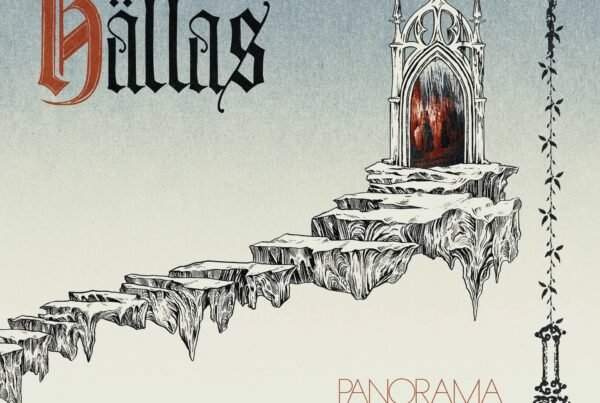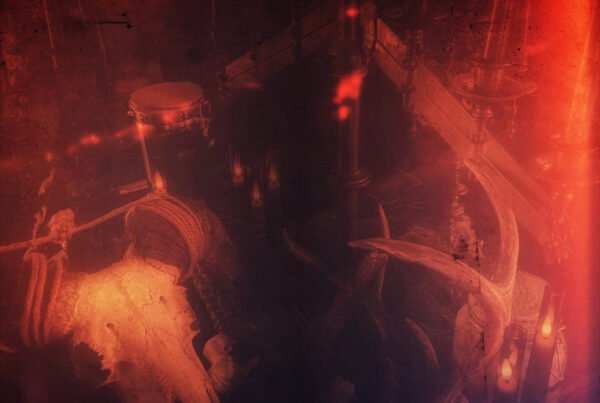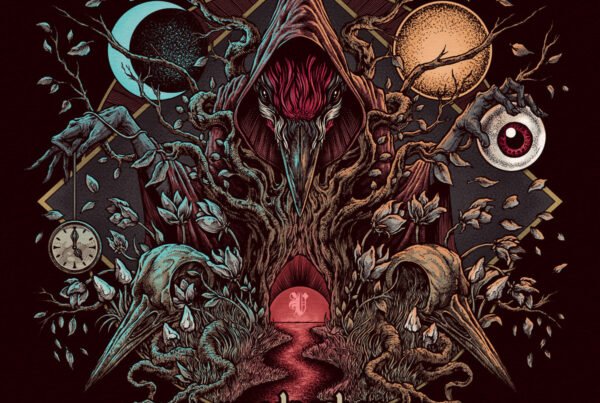Somehow, Saba managed to outdo himself since his last album, crafting an immensely personal, reflective, multifaceted, and relatable project with Few Good Things that could stand as one of hip-hop’s best for many years to come.
Release date: February 4, 2022 | The Orchard/Pivot Gang, LLC | Facebook | Instagram | Twitter | Stream/Purchase
There’s something we have to understand about Saba beforehand, something that he said in order to introduce and contextualize his new album, Few Good Things. One day before release, he posted a statement, an agreement of sorts between him and those of us that would listen to his new music. ‘For so long, I’ve waited for people to understand our place in this industry, our art, and what we represent,‘ he begins. ‘I’ve realized now after being ‘here’ for almost 10 years that I should have just defined this shit for you. It’s not that I feel completely misrepresented, it’s that I want to create space for myself and this experience to be represented wholly.’ Very, very fair so far. Saba continues, voicing some concerns about how people talk about his music:
‘I get it. I understand how it’s easy to only get grief and loss and suffering out of my music, but let’s acknowledge the full spectrum of black emotion when dealing with this album. We grieve. And we also celebrate. And we fuck. And we get money. And we been broke. And we get happy. And we get high. And we are more than one thing all at the same time.’
Saba goes on to challenge us as listeners to ‘actually listen‘, to not approach Few Good Things with preconceived notions of his past and use those to dictate future work, adding to also not compare him to others who aren’t doing what he’s doing. Reading this was a bit sobering to me, and I greatly encourage others read it in full – it’s great. As a huge fan of CARE FOR ME, Saba‘s last album, it made me think about how I’ve done this with perhaps not Saba‘s work, but other artists. Hip-hop to me is the most important storytelling medium I indulge in. By nature and origin, it is an artform wrought with plight. So many of the records I listen to and like deal with misfortune, trauma, grief – these are very emotional subjects that naturally provide a foundation for some strong art for the vulnerable and those prone to sharing, and therefore relation to fans and listeners.
But Saba‘s right: it’s not all he is, and it’s not all that Black art is. It’s not all anyone is. It made me reflect on how I’ve thought about hip-hop lately and was a good self-check for going into Few Good Things. Was I risking fetishizing Black pain? Was I indulging a little too uncomfortably in the woes of the Black community as displayed through their art while not acknowledging the pleasantries and other aspects of Black life? I can’t really answer that, I can only try to be more aware going forward.
This review aims to not only respect Saba‘s wishes with regards to his own work, but to start what will hopefully grow into a more mindful and broad analysis from me when talking about hip-hop and Black art or, really, any art from cultures and communities that I’m not explicitly a part of. I am a very passionate visitor to the medium, a spectator, and there’s a certain respect that should be maintained in that role.
If you’ve read this far, I appreciate it. I felt this intro – long even by my standards – was necessary in order to lead into Few Good Things, which I’ll talk about at greater length starting now. In short… it’s hard to encompass all that it is. But it is more than trauma and grief. It is fear, acceptance, self-discovery, happiness, survival, and… more. A human experience. Saba‘s sound complements this – it’s very regularly delicate, grounded in rhythm like a heartbeat, but aired out with immense, blanketing atmosphere. You’ll hear bass, guitars, string sections, drums of all kinds, along with more traditional hip-hop production. Saba‘s father exposed him to a variety of R&B, soul, and jazz music growing up as he was an R&B artist himself and it seems producers Daoud and daedaePIVOT are more than capable of assisting him behind the boards to make this dreamy sound a reality.
Listening to Few Good Things does many things to you. It radiates through your body and provides a calmness unlike others. Not because Saba isn’t interested in rustling and grabbing attention – nothing could be further from the truth – but he does it on his terms. He’s not a hype rapper, even if I myself get hype when I hear him; he’s calculated and deliberate, well-paced and considerate. There’s only a handful of other rappers I can name where every word hits and matters like it does with Saba.
To be cute about it for a minute, there’s more than a few good things with this album; specifically, all of them. Literally. Production is varied yet fitting, Saba is regularly – constantly – dropping gems in his bars, features are used well, mood is always affecting even if it wears different shades throughout. Genuinely everything is massively successful in terms of a cohesive project, as one would expect from someone with a similarly cohesive, expansive, personal project like CARE FOR ME.
From the serene “One Way or Every Ni**a With a Budget” to the comparatively fierce “Survivor’s Guilt” with G Herbo (and some knocking production), songs drip with charisma, sincerity, and clever lines (one of my favorites is from the latter track – ‘I’m trainin’ for mayhem, but y’all on more triangle/’Cause I saw silly ni**as done change up‘). Often, you’ll catch Saba referring to his youth or family – nostalgia exudes from this music in many ways, never feeling cheap. Despite the rough circumstances of growing up in Chicago, with “2012” he reflects on his grandma’s house (‘My granny basement became the Mecca like Eric Forman’s‘) and enjoying the simpler things that came with being young, like trying to grow closer to a girl, realizing how they made you feel and open up when you usually have anxiety, all over warm instrumentation with skittering drums and humming bass.
Of course, Saba has to acknowledge his come up and the array of feelings that it comes with. “Fearmonger”, one of the album’s singles, is a bouncy jam about the fear of losing everything earned after having fought for it, and how we’re all bound to work to survive and support those around. The end of the first verse is particularly poignant, along with the pre-chorus:
‘From ‘We barely had a chance, left the crib on alert’
To a crib with alarms and security perks
Insecurity hurts the same way jewelry works
So, if you payin’ to flex, pay your security first
No point in payin’ for whips to ride a funеral hearse
We bе prepared for the best, but also fearin’ the worst‘Okay, every ni**a that I know is scared of goin’ broke
I know if I fall back down, ain’t no one there to lend me rope
Okay, and every ni**a that I know takes care of so-and-so
So ain’t no option, option, option, you best go make more’
“Come My Way” is a great companion track about hustling to get that same money, dreaming big, and making moves to get further in life. It features Krayzie Bone, originally from the illustrious Bone Thugs-N-Harmony who I’ve talked about extensively before, who Saba grew up listening to just like I did and has a particular admiration of. Saba‘s quickened flow at the end of his verse on this track is very Bone Thugsian and segues very nicely for Krayzie to lay down some bars about grinding hard, moving different than others, and shining brighter than others as a result, paying homage to his origin in the legendary melodic rap group. The mentality of hustling and grinding endlessly isn’t a particularly healthy one, but it is a reality for many people, particularly young people. Harkening back to “Fearmonger” – ‘so ain’t no option… you best go make more‘ – its continuation is here in this song’s hook: ‘and then we’ll be good‘. Conclusively, I can’t help but think of “1st of Tha Month” with the theming and Krayzie’s distinct voice on this track.
Few Good Things is an exercise in hindsight and reflection, able to use introspection to tackle a number of emotions and subjects in order to draw everything to a clean conclusion, much like I’ll try to do with this very review. There’s a very well-produced, filmed, and realized short film accompanying this album and in the description of it, Saba states that it – the album and film – is ‘about the realization of self after a search for exterior‘, and that satisfaction and feeling complete is gained by ‘simply living a life that is yours‘.
Saba knows and recognizes that money isn’t the answer to personal fulfillment. Needed to survive in a capitalist society, sure, but not required to know yourself. You don’t even need to find fulfillment in someone else like a partner. To realize yourself, you must move past feelings of self-judgment and lack of confidence in yourself. These things and more are all explored on this album, with Saba running through his own experiences with them, looking in the rear view to see how far he’s come, and laid bare for all of us to relate to and reflect on ourselves.
I think about the people I became attached to in various ways, the ones that got me through tough times, and the ones that created tough times for me. I think about my mom and how I support her, and how my own fearmonger exists around me, reminding me that my failure is hers as well. I think back to where I came from – surely not the likes of the westside of Chicago, but my own working-class, single-parent, poverty line-straddling adolescence – about that apartment I grew in about ten miles away from me that’s likely hosted several other families since, or that house on Dexter St. across town I lived in during my junior year of high school when I was more preoccupied with my friends, first girlfriend, and self than my homework or my future.
Since then, the good things in my life have become fewer, as they seem to have with Saba throughout his life. But, to his point, this is a comfort in some ways. In that same film description, he says:
‘Few is a small number, but few is not lonely. In the face of all adversity, a few good things is recognizing and accepting blessings. Few is to count them, one by one. An empty glass is full of air. An empty bank is full of lessons. An empty heart is full of memories. Few good things is to grow comfortable with the empty, and despite that, finding your fullness‘
I don’t know if I can say I’ve found my fullness yet, but hearing Saba‘s journey makes me feel like I’m heading in the right direction, even if my trajectory is much different from his. I have a few good things and that’s enough for me.
Artist photo by C.T. Robert






